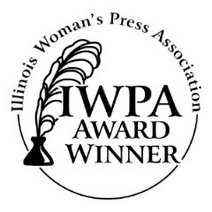
This is the cover of Infinity Publishing's free guide, my "bible" for the information I needed to format my book and get it into print. You can get a copy from the website, www.infinitypublishing.com. Check out that site for valuable information, and see the slide show from the 2006 conference.
I attended the Express Yourself Writers Conference sponsored by Infinity Publishing in Valley Forge, Pennsylvania, last fall. Infinity is the publisher of my book, Reinventing Myself: Memoirs of a Retired Professor, published last summer, so I was eager to learn more about this company and the whole business of publishing. You may see my previous account of the conference in my October 9 post here (in the October 2006 archives).
One thing that I didn't emphasize in my earlier post was the joy of meeting my fellow Infinity authors. I was impressed by their enthusiasm, their diversity, and many of the books they had published. The authors represented all age groups and parts of the United States, although there was a concentration of writers from eastern states reasonably near the conference site. As I recall, I was the only Chicagoan there.
To continue the spirit generated from conference discussions, one of the writers compiled a list of the e-mail addresses of many attendees, and members of the Infinity Authors Group have kept in touch occasionally during the past six months. Infinity Publishing has been very cooperative. Now, several members have included all or nearly all of us on their impressive websites. The purpose is to bring attention to books that are not generally known to the public, but deserve to be. While I can't endorse all of them, not have I read all of them, I can endorse the spirit and creativity of the Infinity authors. These are people I am happy to know.
I am glad to have my book included on at least three of these web sites. To see one of them (I hope to have links to others later), click on "links to this post" (below) and then "Infinity Authors-Infinite Talent ." You may be amazed at the variety of books and authors presented there. If a book sounds interesting, order it! And if you're writing a book, consider Infinity Publishing.
Copyright 2007 by Marlys Marshall Styne
I attended the Express Yourself Writers Conference sponsored by Infinity Publishing in Valley Forge, Pennsylvania, last fall. Infinity is the publisher of my book, Reinventing Myself: Memoirs of a Retired Professor, published last summer, so I was eager to learn more about this company and the whole business of publishing. You may see my previous account of the conference in my October 9 post here (in the October 2006 archives).
One thing that I didn't emphasize in my earlier post was the joy of meeting my fellow Infinity authors. I was impressed by their enthusiasm, their diversity, and many of the books they had published. The authors represented all age groups and parts of the United States, although there was a concentration of writers from eastern states reasonably near the conference site. As I recall, I was the only Chicagoan there.
To continue the spirit generated from conference discussions, one of the writers compiled a list of the e-mail addresses of many attendees, and members of the Infinity Authors Group have kept in touch occasionally during the past six months. Infinity Publishing has been very cooperative. Now, several members have included all or nearly all of us on their impressive websites. The purpose is to bring attention to books that are not generally known to the public, but deserve to be. While I can't endorse all of them, not have I read all of them, I can endorse the spirit and creativity of the Infinity authors. These are people I am happy to know.
I am glad to have my book included on at least three of these web sites. To see one of them (I hope to have links to others later), click on "links to this post" (below) and then "Infinity Authors-Infinite Talent ." You may be amazed at the variety of books and authors presented there. If a book sounds interesting, order it! And if you're writing a book, consider Infinity Publishing.
Copyright 2007 by Marlys Marshall Styne






















